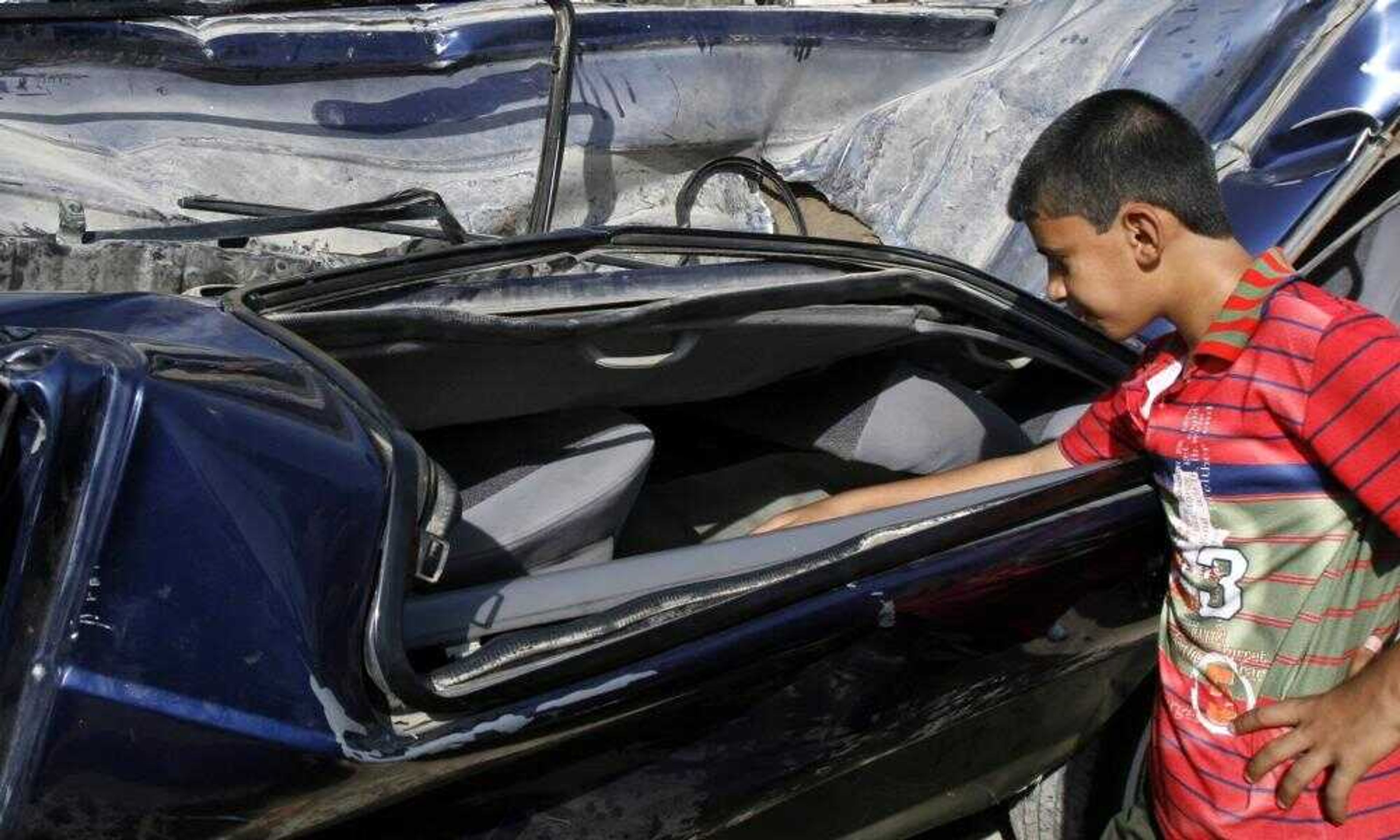Iraqi civilian deaths rise in August
BAGHDAD -- Civilian deaths rose in August to their second-highest monthly level this year, according to figures compiled Saturday by The Associated Press. That raises questions about whether U.S. strategy is working days before Congress receives landmark reports that will decide the course of the war...
BAGHDAD -- Civilian deaths rose in August to their second-highest monthly level this year, according to figures compiled Saturday by The Associated Press. That raises questions about whether U.S. strategy is working days before Congress receives landmark reports that will decide the course of the war.
At least 81 American service members also died in Iraq during August -- an increase of two over the previous month but well below the year's monthly high of 126 in May. American deaths surpassed the 80 mark during only two months of 2006.
U.S. military officials have insisted that the security plan launched early this year have brought a decrease in attacks on civilians and sectarian killings, especially in the Baghdad area, which was the focus of the new strategy.
The top American commander, Gen. David Petraeus, is expected to cite security improvements when he and Ambassador Ryan Crocker submit reports on progress toward stability and national reconciliation to Congress during the week of Sept. 10.
However, figures compiled from police reports nationwide show that at least 1,809 civilians were killed across the country last month compared with 1,760 in July. That brings to 27,564 the number of Iraqi civilians killed since the AP began collecting data on April 28, 2005.
According to the AP count, civilian deaths reached a high point during the wave of sectarian bombings, kidnappings and killings at the end of last year -- 2,172 in December and 1,967 in the previous month.
Crocker predicted Saturday there will be no "fundamental or quick change" in the American policy on Iraq and appealed for patience as Congress prepares to receive the reports.
Speaking in Arabic on Iraqi state television, he said the U.S. administration believes Iraqis have made tangible progress -- which Congress has demanded as a condition for continued U.S. support.
"Since 2003, there has been a stable policy by the American administration, and I don't think there will be a fundamental or quick change in the American policy or stand on Iraq," he said.
Crocker also said Iraqis "and the friends of Iraq" should show patience as the country grapples with its political and security crisis.
"After 35 years of injustice under Saddam Hussein, there are some problems since liberation and the problems of 40 years cannot be solved in a year or two. What is important is that there is progress," he said.
President Bush ordered nearly 30,000 additional troops to Iraq, and monthly death tolls began to decline after the new security plan was launched Feb. 14. But civilian death tolls have been creeping back toward levels approaching those during the worst of the sectarian slaughter.
AP figures show May was the deadliest month for Iraqi civilians this year, with 1,901 people killed in political or sectarian violence.
The August total included 520 people killed in quadruple suicide bombings on communities of Yazidis, a Kurdish-speaking religious minority, near the Syrian border. The attacks made Aug. 14 the deadliest day since the war began in March 2003.
Deaths went down in Baghdad during August in part due to a strict vehicle ban imposed on the city during a major Shiite religious ceremony. Violence dropped dramatically during the Aug. 8 through 12 ban.
Connect with the Southeast Missourian Newsroom:
For corrections to this story or other insights for the editor, click here. To submit a letter to the editor, click here. To learn about the Southeast Missourian’s AI Policy, click here.








